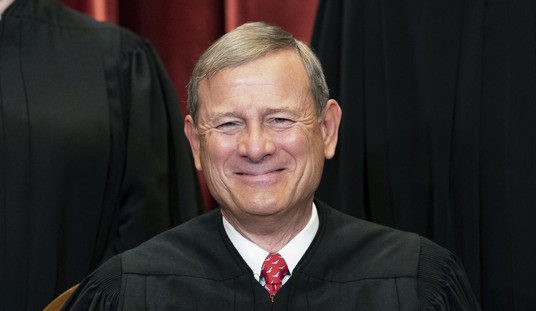Barack Obama always liked to present himself as a pragmatist, someone who solved problems cooly. According to a new 1,400-page biography, that approach even guided his closest personal relationships. Specifically, Obama became concerned that his white girlfriend was going to hamper his political prospects in Chicago at a time when he was already thinking seriously about becoming president one day.
The revelations come from a new biography titled “Rising Star: The Making of Barack Obama” by David Garrow. A review in the Washington Post highlights revelations about the woman Obama asked to marry him before he met Michelle. That relationship began to fall apart because, according to friends, Obama became concerned a white partner would limit his political future:
It is in the personal realm that Garrow’s account is particularly revealing. He shares for the first time the story of a woman Obama lived with and loved in Chicago, in the years before he met Michelle, and whom he asked to marry him. Sheila Miyoshi Jager, now a professor at Oberlin College, is a recurring presence in “Rising Star,” and her pained, drawn-out relationship with Obama informs both his will to rise in politics and the trade-offs he deems necessary to do so…
In early 1987, when Obama was 25, [Jager] sensed a change. “He became. . . so very ambitious” very suddenly,” she told Garrow. “I remember very clearly when this transformation happened, and I remember very specifically that by 1987, about a year into our relationship, he already had his sights on becoming president.”…
In Garrow’s telling, Obama made emotional judgments on political grounds. A close mutual friend of the couple recalls Obama explaining that “the lines are very clearly drawn. . . . If I am going out with a white woman, I have no standing here.” And friends remember an awkward gathering at a summer house, where Obama and Jager engaged in a loud, messy fight on the subject for an entire afternoon. (“That’s wrong! That’s wrong! That’s not a reason,” they heard Sheila yell from their guest room, their arguments punctuated by bouts of makeup sex.) Obama cared for her, Garrow writes, “yet he felt trapped between the woman he loved and the destiny he knew was his.”
Obama continued seeing Jager into the early 90s, even after he had met Michelle Robinson. Jager tells Garrow she “felt bad about it” which suggests their relationship was more than friendship even while Obama was dating Michelle.
Garrow reveals some other new information about Obama’s cocaine use (it continued after college) and he describes Obama’s autobiography Dreams from My Father as “historical fiction” which Obama’s friends didn’t view as an accurate portrait of the man they knew. In the end, Garrow’s view of Obama is surprisingly harsh. “While the crucible of self-creation had produced an ironclad will, the vessel was hollow at its core,” Garrow writes.
There were two films out last year about Obama’s dating life. Southside with You presented a glossy, nostalgic tale about his relationship with Michelle. The other film, Barry, told the story of Obama’s relationship with a composite girlfriend he dated prior to Michelle. From the New Republic:
His romantic entanglement with Charlotte (Anya Taylor-Joy), a porcelain-faced Barnard brunette who comes from a well heeled Connecticut family tied deeply to the Democratic Party, draws out Barry’s budding realization that America is not designed for them to be together; no matter how hard he tries…
“Pretty uptight people here, huh?” a bow-tie wearing white guy remarks to Barry at a wedding, which is held in a massive country mansion where Barry once again finds himself, other than the servants, the only black person in the room. “I’m an uptight kind of guy,” he replies, half-serious, half-empty. He knows he’ll never fully belong in these environs, but he finds it equally hard, no matter how “down” Charlotte is, to take her into black spaces. Buying books on the streets of Harlem, eating soul food at Sylvia’s, they are hounded with looks from stoic, stately black women, giving rise to Pryor’s contemporaneous observation that “sisters will look at you like you killed your mamma when you’re out with a white woman.”
I haven’t seen the film but you get the sense that it makes Obama out as the victim of a society that refuses to let love win. That’s very different from the portrait Garrow paints, i.e. an ambitious young man who makes a calculated decision that a white girlfriend hurts his chances. It’s the difference between Obama being a victim of racial politics and being a manipulator of them for his own ends.








Join the conversation as a VIP Member